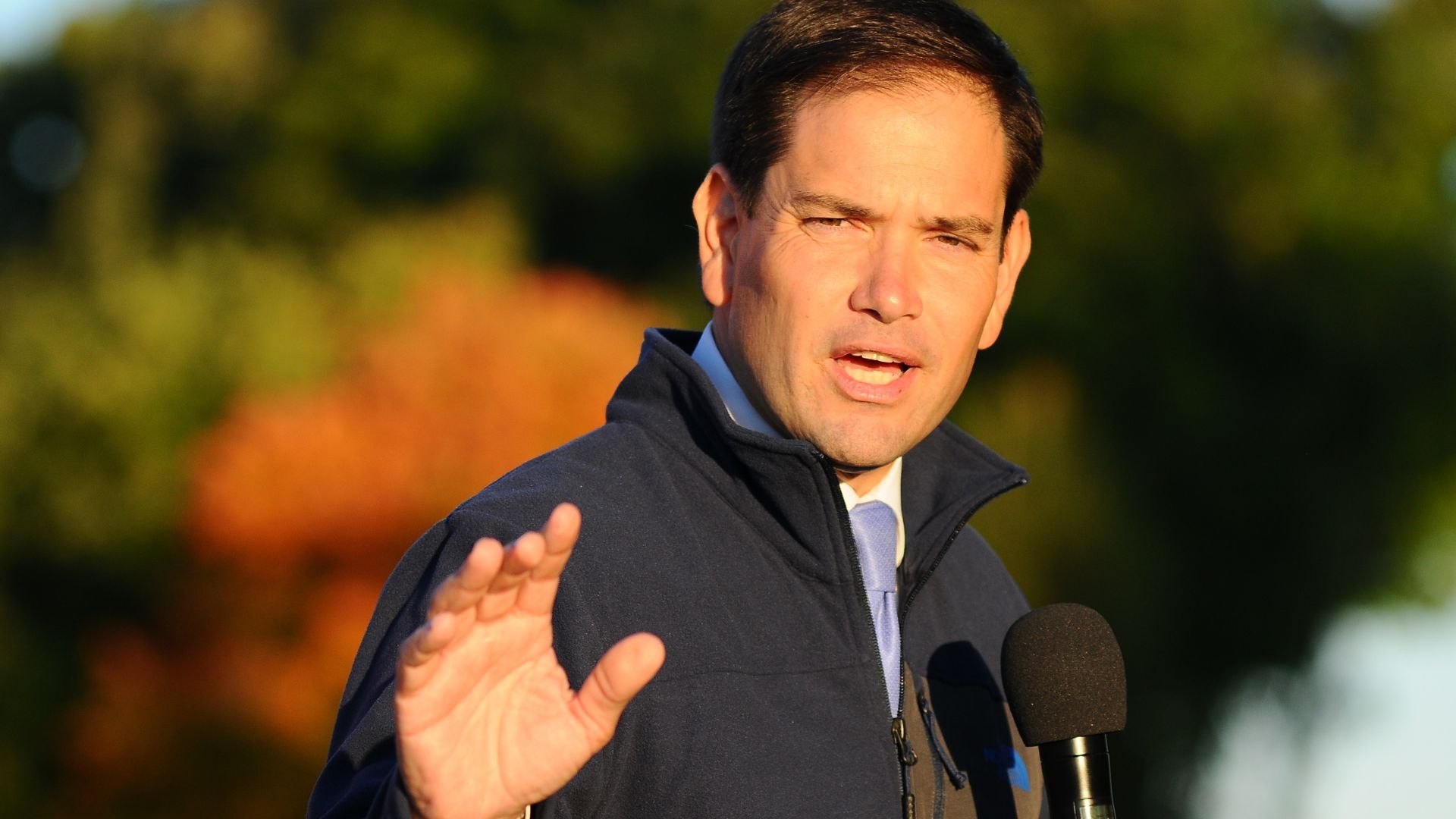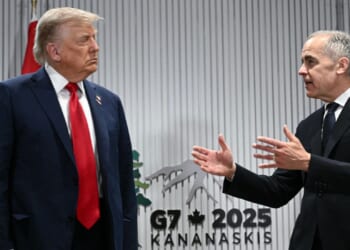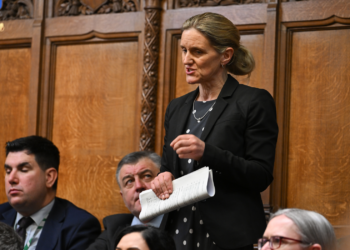
Secretary of State Marco Rubio announced Thursday that the State Department will no longer issue new visas for commercial truck drivers, a move aimed at reducing the number of foreign drivers operating 18-wheelers on American highways.
“Effective immediately, we are pausing all issuance of worker visas for commercial truck drivers,” Rubio said.
“The increasing number of foreign drivers operating large tractor-trailer trucks on U.S. roads is endangering American lives and undercutting the livelihoods of American truckers.”
Effective immediately we are pausing all issuance of worker visas for commercial truck drivers.
The increasing number of foreign drivers operating large tractor-trailer trucks on U.S. roads is endangering American lives and undercutting the livelihoods of American truckers.
— Secretary Marco Rubio (@SecRubio) August 21, 2025
Trump’s Sovereign Wealth Fund: What Could It Mean For Your Money?
The announcement comes days after an Indian truck driver was accused of causing a fatal accident in Florida.
This Could Be the Most Important Video Gun Owners Watch All Year
[esi random_video_player ttl=”0″]
On August 12, the driver allegedly made an illegal U-turn on the Florida Turnpike that blocked opposing lanes of traffic, killing three Americans.
The accident was captured on video and has drawn national attention to the growing concerns about foreign truckers.
The American Trucking Industry has been gutted by unregulated immigration over the past five years. These “California ” drivers are part of an eco system that puts profit over safety. That puts greed before your family.
A system that not only doesn’t put Americans first but… pic.twitter.com/HZBXWg0eck
— American Truckers 🚛🦅 (@atutruckers) August 16, 2025
In response to the crash, Transportation Secretary Sean Duffy said his department would step up enforcement of safety laws and investigate how the driver was licensed despite reportedly not being able to understand English or read road signs.
Florida Governor Ron DeSantis has also taken steps to address what he described as the risks posed by reckless foreign truckers.
Rubio’s decision does not cancel existing visas for drivers already in the United States. Many of those truckers obtained commercial licenses in states that allow noncitizens to qualify, including California and Utah.
The new policy halts only the issuance of additional visas going forward.
The State Department did not clarify which categories of visas will be affected by the suspension.
Seasonal H-2B visas are commonly used to bring in foreign truckers for agricultural hauling, while other workers have used B-1/B-2 visitor visas to take trucking jobs illegally.
Some foreign nationals have also entered on E-2 investor visas that allow them to legally operate as truckers in the United States.
A significant share of foreign truck drivers in the U.S. come from India, with many entering the country initially on student visas before taking unauthorized employment in industries including trucking.
Others enter from Canada, Mexico, or Eastern Europe, often using visitor visas to secure trucking jobs.
For years, federal oversight of how visa holders work in the trucking industry has been minimal.
The pause ordered by Rubio marks one of the first significant federal actions targeting the practice of foreign drivers entering the U.S. workforce through a variety of visa categories.
Reaction to the policy was divided. Trucking advocates praised the decision, arguing it would help restore wages and job opportunities for American drivers.
Industry critics, however, warned that the policy could worsen what they describe as a long-running shortage of drivers.
“Massive truck driver shortage that is driving up the prices of everything we purchase and Rubio decides to make it worse based on an anecdote,” said David Bier of the Cato Institute.
“Totally absurd decision making process though I don’t know what visas he’s even talking about ‘pausing.’”
Trucking companies have for years claimed that the U.S. faces a significant shortage of drivers, citing the challenges of filling long-haul jobs that keep workers on the road for extended periods.
Advocates for American drivers counter that the shortage narrative is misleading and that companies have failed to increase wages and improve working conditions to make the profession more sustainable.
Rubio’s order represents a shift in federal handling of worker visas in the trucking sector and signals heightened scrutiny over the role of foreign labor in an industry central to the nation’s supply chain.
Whether the pause will remain temporary or evolve into a broader policy change remains uncertain, but the decision has already sparked a debate over how best to balance highway safety, labor markets, and economic demand in America’s trucking industry.

![Rubio Shuts Down Illegal Alien Trucker Visas Following Deadly Florida Accident [WATCH]](https://www.right2024.com/wp-content/uploads/2025/08/Rubio-Shuts-Down-Illegal-Alien-Trucker-Visas-Following-Deadly-Florida-750x375.jpg)





![Florida Man With Violent History Arrested for Choking a Cop [WATCH]](https://www.right2024.com/wp-content/uploads/2025/06/Eleven-Stabbed-in-Attack-at-Salem-Homeless-Shelter-Across-From-350x250.jpg)








